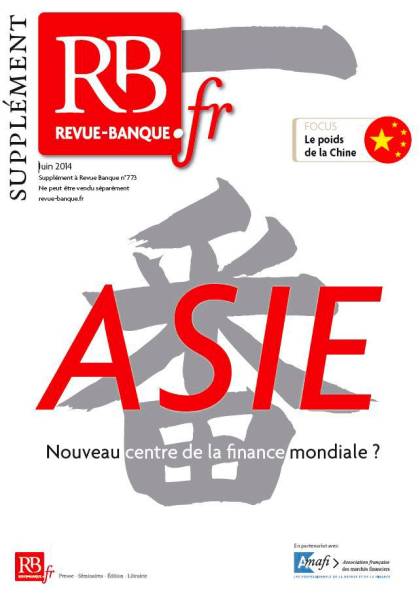What are the prospects for the British fund industry, after the UK obtained a RQFII status late autumn?
China is opening up its market and it’s a rather complex process. We see the RQFII as another facet of this opening up. Clearly this is very welcome in London, for UK-based fund managers. But of course it requires Chinese markets to be wider and deeper than they are actually. There are limited investment opportunities at the moment.
The IFC made an issuance in RMB in March in London. Is this a prelude to other major issuances ?
I’m sure, yes. We would expect to see much more issuers since the biggest international institutions need to raise money in Renmibi where they can find the market. And London is a place where issuers are most likely to find the investors.
Generally speaking which kind of partnership do you plan to establish with China and also with Hong Kong?
As far as China is concerned, as you know we have a very good relationship in a number of ways. The City of London has an active programme of engagement with China, which it has long recognized as a key global market and which it maintains through regular dialogue and by promoting contact between UK and China’s financial services stakeholders. I visit China once a year, so does the Lord Mayor, and I’m a member of the Shanghai International Advisory Council; we work closely with practitioners and officials there on key topics such as the international use of the renminbi, insurance sector development and maritime services. We also welcome many visitors from China and facilitate meetings with UK counterparts to engage with partnership to continue for the mutual gain of both countries.
Partnership and regular engagement with Hong Kong is also important to us. UK based banking and financial institutions have massive interests in Hong Kong, and very strong contacts already exist between the two strong financial centres. There are many areas of interest to both and we will seek to continue to collaborate constructively on these.
What will be the next step after the announcement of the set-up of a RMB clearing bank in London?
Now that the MOU has been signed, this is a matter for the People’s Bank of China. There have been a number of technical discussions between Chinese central bank and the Bank of England, which the City of London RMB initiative is incredibly supportive of. We expect to see a name emerge in due course.
What kind of competitive advantage such a bank can give to the City?
A London clearing bank will be a definite asset, building on existing effective processes already in use in the UK for renminbi transactions (including through Hong Kong). Official clearing and settlement services will prove to investors and companies the strength of London’s commitment to continue growing as a leading centre for RMB business, providing additional infrastructure capacity to match ever-growing RMB volumes and befitting the world’s largest centre for foreign exchange.
In Hong Kong I heard the Lord Mayor speaking about Islamic finance development opportunities between London and Hong Kong. Could you tell us more about this?
The City of London Corporation works to promote and enhance the City's status and effectiveness as a world-leading global centre for finance and business. One of the areas in which it has been developing in recent years is in that of Islamic finance. These strengths were showcased at the Ninth World Economic Forum held here in 2013, for the first time in a non-Muslim country.
Hong Kong has shown strong interest in developing its Islamic finance market and as an area of mutual interest between the two centres, London is happy to explore possible opportunities for the benefit of Hong Kong and UK companies as a whole.
With common firms – including major banks - in this sector already operating in both the UK and Hong Kong are natural partners there is no doubt already much being done, much of it led by the private sector.
China plans to set up a free trade zone dedicated to wealth management in Qingdao and would like to benefit from City’s expertise. What kind of technology transfer can be done?
A great number of changes have taken place in China and the City of London supports China’s steps towards liberalisation of its markets. FTZs are part of this reform agenda. A global wealth management centre requires a sophistication that many jurisdictions would like to have. It is Chinese authorities’ responsibility to provide the framework to attract fund managers and they are working on it. As far as we can tell in the City, we are very happy to lend our experience where possible to provide advice on developing financial centres, although there is not one approach and each centre must find its own way. Wealth management centres rely on several factors, one of the most important of which is that of a highly-skilled global workforce in the financial and professional services sectors. The wealth management sector employs not just staff working in private banks, financial advisors and investment managers, but also highly-skilled lawyers, accountants, trustees, and those providing ancillary services such as IT software firms. Centres that wish to excel in wealth management such as Qingdao, must be able to attract global talent as well as develop the skills of their local workforces.









